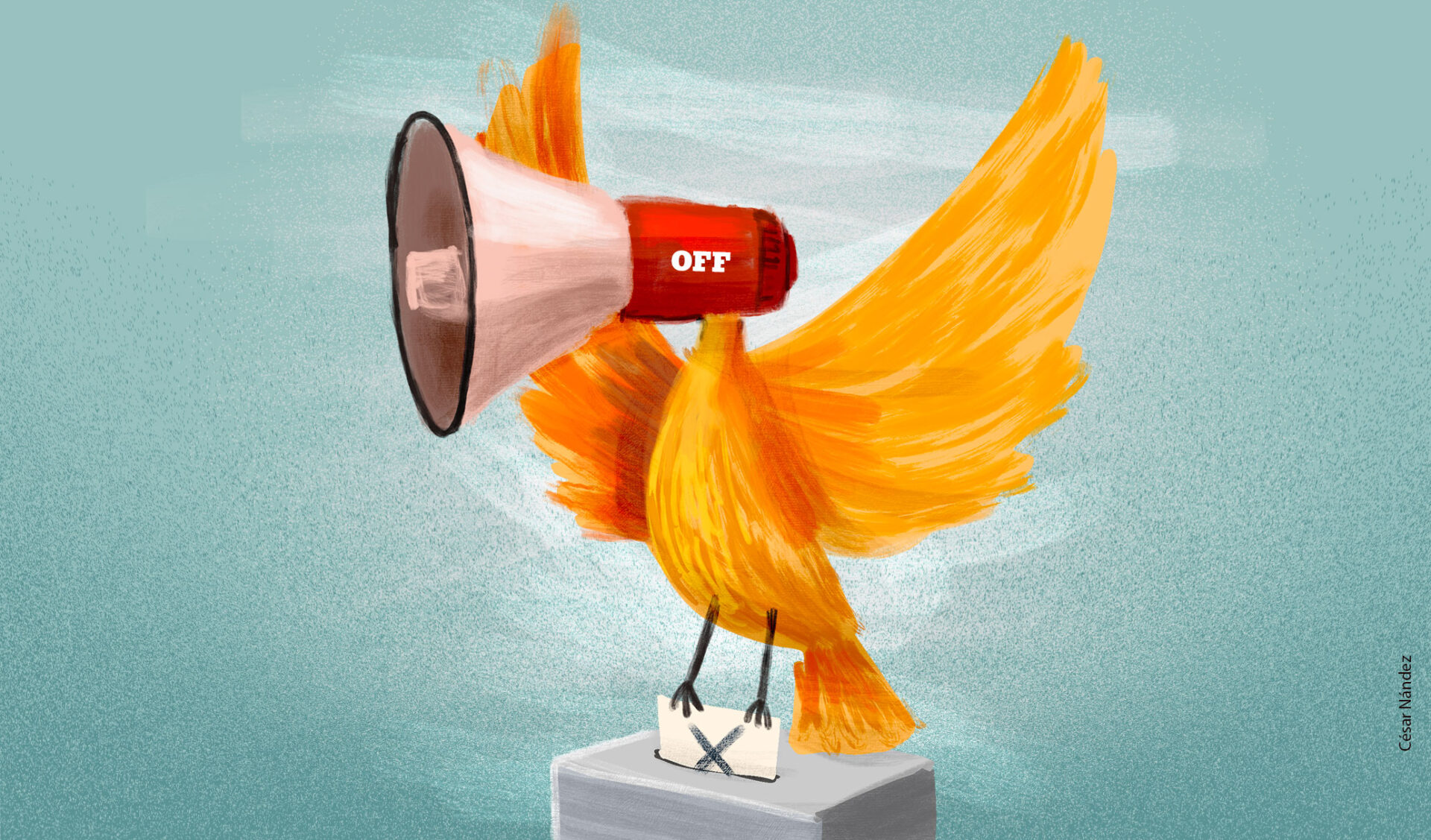The last twelve months saw a deactivation of demonstrations and popular participation in Brazil that came as a surprise, at least until Sunday, February 25, when Bolsonaro summoned his supporters to show their mobilizing force. Correct?
For those who were perplexed by the assault on the Three Powers on January 8, 2023 by thousands of self-styled “patriots” seeking to seize power by force or for those who were used to seeing the streets and beaches taken over by protesters and vehicles in favor of each candidate in the 2022 presidential elections, Brazil recently resembled a desert.
The return of the protests in 2013
The comparison becomes evident going beyond the most immediate electoral period: the motorcycle marches against authorities or judicial rulings favored by the extreme right since 2018, the full occupation of public spaces on patriotic dates called by former President Bolsonaro throughout his term, the protests of the left and center-left against the anti-democratic onslaughts of officialdom in the previous government or to celebrate the release of former President Lula from jail, all were events that revealed a mobilized Brazil in a state of virtual revolt. Not to mention the succession of marches, rebellions, and protests from 2013 onwards, which made one think that — in an unexpected way — the citizenry had awakened to politics, public interest, and the will to participate openly.
The 185 thousand Brazilians who occupied Paulista Avenue on the last Sunday of February to show their support for former president Bolsonaro, now prevented from running for office, would supposedly reveal the validity of an active and supervising citizenry, something that textbooks would tend to translate into an example of autonomous horizontal democracy. The punctual agglomeration in favor of an authoritarian leadership and condemned by justice — even more massive during a brief period of Sunday — precisely reinforces the predominance of the diagnosis of the desertification of public life in the country.
The mobilization contrasts with the scarce capacity of articulation and civic mobilization despite the predominant religious subordination of his supporters to the evangelical leadership or the inertia to enthrone a personalist messianic condemned to not being able to dispute positions electorally.
Beyond the thousands who went on a pilgrimage dressed in green and yellow on an isolated Sunday afternoon in February 2024, the picture of civic participation and protest in Brazil could not be more contrasting with what was seen two years ago amid the electoral campaign or 10 years ago when the echo of the marches and urban struggles of 2013 was still ringing.
If public opinion studies such as those of Latinobarómetro revealed that in the critical year of 2013 only 34% of Brazilians understood that voting was the best way to guarantee national progress and 50% proposed the combo “vote and protest” to obtain that result, ten years later the options were strongly moderated. By mid-2023, only one-third (33%) of citizens were seduced by vote plus protest, while the exclusive method of going to the polls to improve things climbed to 43% of adhesion.
What does it mean that people do not go out to protest?
Does the desertification of the public scene reveal the triumph of political apathy or — even more serious — democratic disaffection? Not a bit. The same study reveals that support for democracy has risen to its highest since 2015, with 46% understanding that there is no better alternative than democracy.
In terms of indicators of political motivation, the percentage of individuals who say they regularly discuss politics in 2023 remains virtually tied with that of 2013. The same is true for those who engaged in campaigning for a public cause or candidate. On the other hand, contrary to expectations, the survey reveals many more citizens signing petitions now than ten years ago.
There is no political science course, public discourse, or journalistic column in media committed to democracy that does not associate the civic ideal with the individual committed to the collective good. We refer to the individual involved body and soul through active participation in local or national politics, informing himself, deliberating with others, present in the streets as well as in private spheres, militating and mobilizing to embody a visible public voice.
It is the model of the democratic citizen sketched by the classics, idolized by the enlightenment movements that consecrated the French Revolution in 1789 and inspired the birth of democracies after the 19th century. Many associate him with the Athenian prototype of more than two thousand five hundred years ago, the emblem and forger of the democratic aspiration.
It is also the subject desired and invoked by the progressivisms of the late 20th century and the decades of the 21st century, especially those with populist overtones, where the militant is enthroned as the driving force of democratic change. The aspirational purity of this model of civic-mindedness comes to be cultivated almost as a profession of religious faith, allowing its contamination by dogmatic moralistic visions. Being a good citizen, which means being immersed in public life, has become a normative requirement. After all, postulate those who defend that ideal, self-exclusion from politics and participatory disinterest conspire against a strong democracy by ceding all initiative to the elites.
For decades, if not centuries, this ideal was naturalized to the point of becoming a benchmark, a sufficiently demanding basis of comparative reference to favor diagnoses of political apathy in the population when such participatory immersion was not identified. Reactions of skepticism, if not outright questioning of this standard did not take long to emerge. Faced with the revolutionary frenzy of the Jacobins who represented this ideal, conservatives such as the Tory leader in England at the time, Edmund Burke, warned of the deviations toward intolerance, the monopoly of power, the restriction of the freedoms of others and the unproductiveness that individuals constantly immersed in public life could generate.
Already in the 20th century, liberal or moderate political scientists such as Samuel Huntington warned about the risk of ungovernability and the destruction of democratic routines, institutions, and rituals due to an excess of demands that would be impossible to channel and process through open political systems if everyone were constantly in the streets demanding more benefits, more participation, and more rights. A student of political processes in Latin America and other emerging nations, Huntington interpreted that this ideal of maximum activated citizenship put into practice resulted in the overflow of the concrete capacities to satisfy growing and contradictory demands of the always weak Latin American democracies. Perversely, the maximalist model of participatory citizenship, which had been promoted to deepen democracy, ended up undermining it and opening the door to authoritarian regimes.
De-participation leads to de-democratization
The extremes of militant ecstasy and excessive political apathy often capture the ups and downs of our societies, despite the wide range of intermediate possibilities. The perspective of militant civility presupposes that if citizens are not occupying public spaces with their voices, interests, and values, others will do it for them. And it is not uncommon to associate this prognosis with a negative outcome: de-participation leads to de-democratization.
Faced with such an adverse scenario, it is understandable to grimace with dissatisfaction at any hint of demobilization and concentration on private interests. It is also easy to understand the frequent conclusion that our societies are characterized more by apathy and political alienation than by participatory engagement.
From a historical perspective, Brazilians were frequently characterized by these feelings and behaviors of remoteness and detachment from political involvement. Even more so compared to Argentines or Chileans, for example. The return to democracy after the dictatorship was seen much more as the result of a negotiation among elites than of popular pressure. And the eventual mobilizations and protests that occurred in the first decades after the transition paled in comparison to the massive marches in neighboring countries.
Systematically, voting every four years represented the clearest and also the most ambitious way to engage in politics. Other modalities remained off the public radar. Hence, the chorus of surprised voices among social scientists and journalists when in 2013 isolated demonstrations in some Brazilian cities in favor of public transportation discounts for students quickly turned into protests of Homeric proportions with a multi-issue agenda and an aspiration to improve the quality of democracy.
The participatory explosion soon destabilized the democratically elected government of the day. The nature of moral superiority with which this civic ideal is usually postulated favors the justification of its existence beyond its effects contrary to democratic consolidation. It also favors its penetration by a discourse of ethical indignation and normative judgment. The result is well known: three years later, the then president Dilma Rousseff was removed via impeachment due to the massive jubilation of many who had embodied the model of the vigilant and militant citizen. The rules of the game were bent to the presidency being occupied by a center-right coalition and two years later the far right came to power with Bolsonaro.
The current apparent emptiness of the public scene by individuals (beyond some isolated event such as the summoning of thousands of sympathizers of a single ideological sign to a personalist act at the end of February 2024) is far from representing the triumph of apathy or an alert for a supposed democratic indifference. Neither does it symbolize the majority satisfaction with the management of the current government or the overcoming of the affective polarization that quickly encouraged the taking of the streets a few years ago. It sounds more like a reasonable silent digestion of methods and objectives to favor plausible ideals of representation and effective control of the public interest without sacrificing or risking governability.
*Translated by Janaína Ruviaro da Silva from the original in Spanish.













